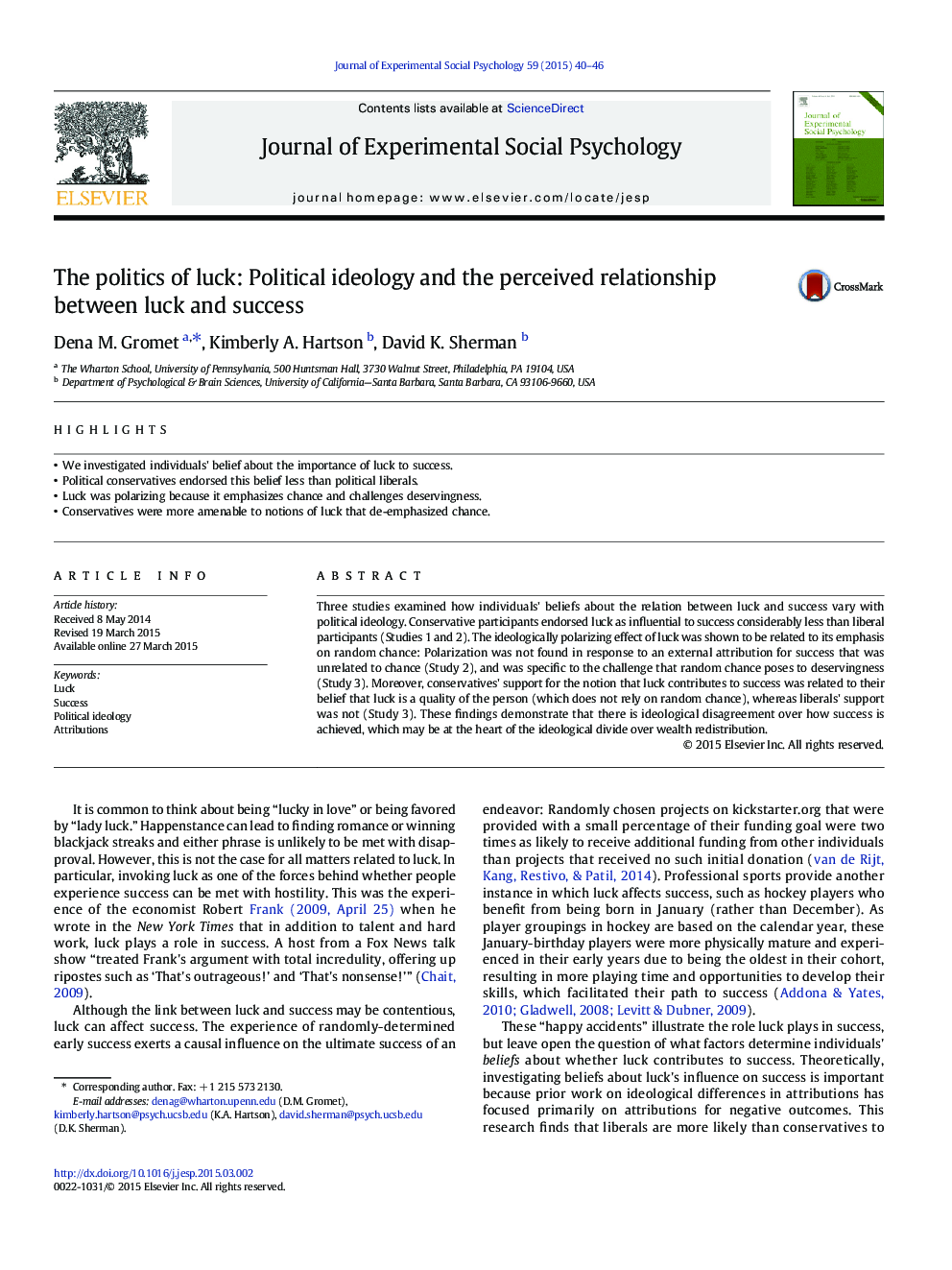| Article ID | Journal | Published Year | Pages | File Type |
|---|---|---|---|---|
| 947705 | Journal of Experimental Social Psychology | 2015 | 7 Pages |
•We investigated individuals' belief about the importance of luck to success.•Political conservatives endorsed this belief less than political liberals.•Luck was polarizing because it emphasizes chance and challenges deservingness.•Conservatives were more amenable to notions of luck that de-emphasized chance.
Three studies examined how individuals' beliefs about the relation between luck and success vary with political ideology. Conservative participants endorsed luck as influential to success considerably less than liberal participants (Studies 1 and 2). The ideologically polarizing effect of luck was shown to be related to its emphasis on random chance: Polarization was not found in response to an external attribution for success that was unrelated to chance (Study 2), and was specific to the challenge that random chance poses to deservingness (Study 3). Moreover, conservatives' support for the notion that luck contributes to success was related to their belief that luck is a quality of the person (which does not rely on random chance), whereas liberals' support was not (Study 3). These findings demonstrate that there is ideological disagreement over how success is achieved, which may be at the heart of the ideological divide over wealth redistribution.
